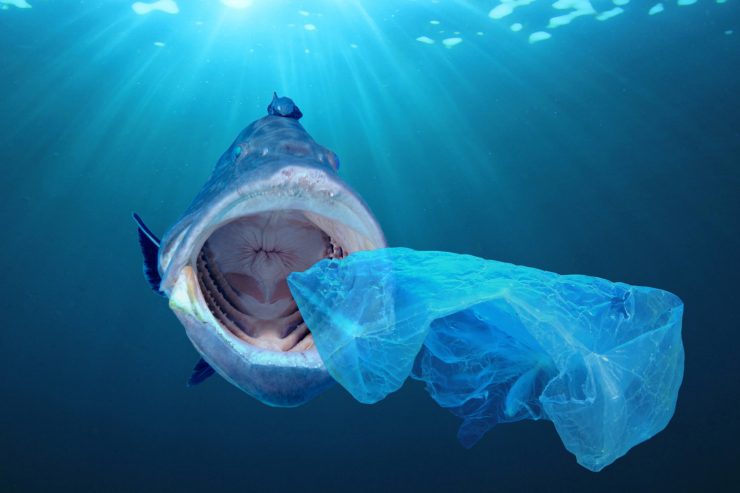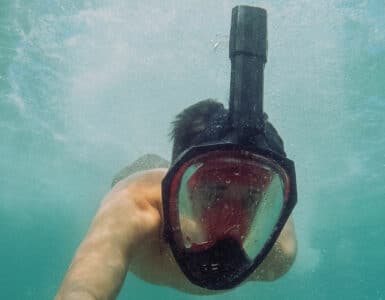Did you know that around 3 full truckloads of plastic bags end up in the ocean every minute? This corresponds to 16,000 plastic bags per second. On average, a plastic bag is only used for 12 minutes before it is thrown away. Around 10 % then end up in our oceans via detours.1

BeyondSurfing’s counter shows how many new plastic bags end up in our oceans today, this week, this month or this year.
Why is this important to know?
Every year we consume 100 million tons of plastic and around 10% of this ends up in our oceans.2 Once in the oceans, the plastic breaks down into tiny pieces and is mistaken for food and ingested by marine animals.
- By 2050, the world’s oceans could contain more plastic than fish by weight.3
- 700 species of marine animals are threatened with extinction due to plastic pollution.4
- 1 in 3 fish caught for human consumption contains plastic.5
It turns out that plastic cannot be digested by fish and therefore ends up in our food chain.
The most important facts at a glance:
- Every year, 5 billion plastic bags are used, which equates to 160,000 per second.6
- 160,000 plastic bags strung together would circle the earth 7 times every hour and cover an area twice the size of France.
- Less than 1% of bags are recycled, the rest are simply thrown away and often end up in our oceans.7
- On average, a plastic bag is only used for 12 minutes and then thrown away.8
- Plastic bags can take up to 20 years to completely decompose in the ocean.9
- 100,000 marine animals are killed by plastic bags every year.10
- It is estimated that 300 million plastic bags end up in the Atlantic Ocean alone every year.11
- Plastic bag consumption is falling steadily every year and was reduced by 76% between 2000 and 2019.12
Possible solutions?
Since the beginning of the 21st century, plastic bags have been banned in more and more countries or are no longer allowed to be handed out free of charge. Australia, for example, is planning a total ban on plastic bags. Plastic bags have been banned in Germany since January 2022. Only very thin bags, as known from the fruit and vegetable department, may still be handed out.
But is this the perfect solution? It remains to be seen how many people will still reach for a waterproof, tear-proof plastic bag when packing fruit and vegetables in the supermarket to carry them home.
The history of the plastic bag
The plastic bag – strangely enough, nobody buys them, but everyone has one in their hand. It was invented in the 1960s and has been an integral part of everyday life ever since.
The plastic bag offers many advantages because it is light, tear-resistant and water-repellent. Everything that was weighed out at the grocery store around the corner was stored in a plastic bag and could be conveniently carried home.
Retailers quickly came up with the idea of using plastic bags as an advertising medium. This made it possible to advertise on a massive scale without paying anything for it. The plastic bags have practically spread by themselves. In the Eastern Bloc, the bags quickly became a status symbol, as they bore the names of coveted brands.
Whether as a useful companion in retail, as an advertising medium or even as a status symbol, the plastic bag was used by everyone. Nowadays, however, it is increasingly becoming a major symbol of the pollution of our environment.
References
- 1 BeyondSurfing, How does plastic get into the sea?
- 2. plastic bags used per year
- 3. explain ocean warming
- 4. science about plastic garbage patches
- 5 Occurrence of Mirco Plastic
- 6. plastic bags used per year
- 7. plastic bags used per year
- 8. plastic bags used per year
- 9 Statista, Shelf life of plastic waste at sea
- 10. plastic bags vs. microbeads
- 11. plastic bags used per year
- 12. Collection Use of plastic bags
Note: BeyondSurfing is not responsible and is not liable for the content of external websites.







Add comment